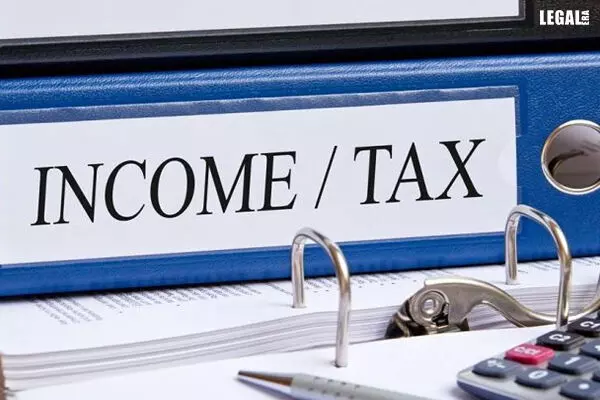- Home
- News
- Articles+
- Aerospace
- Artificial Intelligence
- Agriculture
- Alternate Dispute Resolution
- Arbitration & Mediation
- Banking and Finance
- Bankruptcy
- Book Review
- Bribery & Corruption
- Commercial Litigation
- Competition Law
- Conference Reports
- Consumer Products
- Contract
- Corporate Governance
- Corporate Law
- Covid-19
- Cryptocurrency
- Cybersecurity
- Data Protection
- Defence
- Digital Economy
- E-commerce
- Employment Law
- Energy and Natural Resources
- Entertainment and Sports Law
- Environmental Law
- Environmental, Social, and Governance
- Foreign Direct Investment
- Food and Beverage
- Gaming
- Health Care
- IBC Diaries
- In Focus
- Inclusion & Diversity
- Insurance Law
- Intellectual Property
- International Law
- IP & Tech Era
- Know the Law
- Labour Laws
- Law & Policy and Regulation
- Litigation
- Litigation Funding
- Manufacturing
- Mergers & Acquisitions
- NFTs
- Privacy
- Private Equity
- Project Finance
- Real Estate
- Risk and Compliance
- Student Corner
- Take On Board
- Tax
- Technology Media and Telecom
- Tributes
- Viewpoint
- Zoom In
- Law Firms
- In-House
- Rankings
- E-Magazine
- Legal Era TV
- Events
- Middle East
- Africa
- News
- Articles
- Aerospace
- Artificial Intelligence
- Agriculture
- Alternate Dispute Resolution
- Arbitration & Mediation
- Banking and Finance
- Bankruptcy
- Book Review
- Bribery & Corruption
- Commercial Litigation
- Competition Law
- Conference Reports
- Consumer Products
- Contract
- Corporate Governance
- Corporate Law
- Covid-19
- Cryptocurrency
- Cybersecurity
- Data Protection
- Defence
- Digital Economy
- E-commerce
- Employment Law
- Energy and Natural Resources
- Entertainment and Sports Law
- Environmental Law
- Environmental, Social, and Governance
- Foreign Direct Investment
- Food and Beverage
- Gaming
- Health Care
- IBC Diaries
- In Focus
- Inclusion & Diversity
- Insurance Law
- Intellectual Property
- International Law
- IP & Tech Era
- Know the Law
- Labour Laws
- Law & Policy and Regulation
- Litigation
- Litigation Funding
- Manufacturing
- Mergers & Acquisitions
- NFTs
- Privacy
- Private Equity
- Project Finance
- Real Estate
- Risk and Compliance
- Student Corner
- Take On Board
- Tax
- Technology Media and Telecom
- Tributes
- Viewpoint
- Zoom In
- Law Firms
- In-House
- Rankings
- E-Magazine
- Legal Era TV
- Events
- Middle East
- Africa
ITAT provides succor to the assessee on Income Tax department's order

ITAT provides succor to the assessee on Income Tax department's order
Citing an earlier decision of the jurisdictional high court, the bench quashed the instruction
The Kolkata bench of the Income Tax Appellate Tribunal (ITAT) has held that the order that suffers from patent irregularity, cannot be made the foundation for subsequent proceedings.
The assessee Goyal Solar Systems Pvt. Limited had appealed before the tribunal on the order received from the Principal Commissioner of Income Tax.
Akshay Ringasia and Taraknath Jaiswal, the counsels for the assessee, submitted that even though the assessing officer (AO) passed an assessment order under the Income Tax Act, he did not issue any notice. Thus, in failing to do so, the assessment order would be void ab initio and no action could be taken on that faulty order.
Importantly, Sudipta Guha, the counsel for the revenue department did not negate that fact.
The Coram of Rajpal Yadav (vice-president) and Girish Agrawal (accountant member) observed, "Before doubting the claim of the assessee disclosing 'Nil' income, the IT department has to first issue a notice so that the assessee can submit evidence in support of its claim."
The bench added, "Only after the notice, he can verify other details and change the status of 'Nil' income. Thus, the assessment order itself is not sustainable. If an order itself suffers from patent irregularity, it cannot be made a foundation for subsequent proceedings. It is also pertinent to note that the non-issuance of notice was specifically observed by the Ld. Commissioner in the impugned order."
Drawing support from the decision of the jurisdictional high court in the PCIT vs Oberoi Hotels case, the tribunal stated that the impugned order was not sustainable and was quashed.



